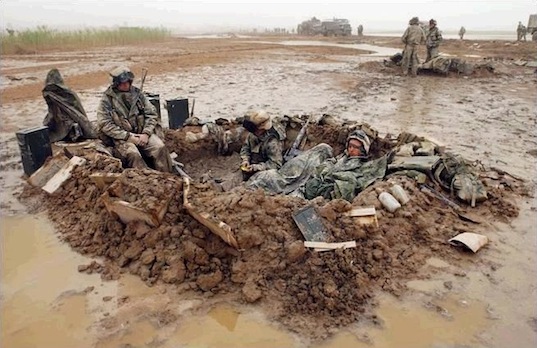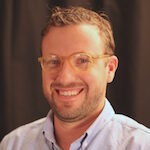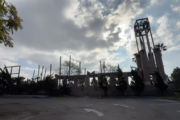Photo by Eric Feferberg
The aphorism “There are no atheists in foxholes” first arose to describe the pleas for salvation prayed by terrified soldiers facing impending death in the trenches of Europe during WWI.
A century after the Great War, the adage is most often evoked to describe religious commitments made by people who are facing a life crisis that has no earthly solution. Both theists and non-theists are dubious about “foxhole faith,” or religious commitments made in the context of intense personal crisis. The Freedom from Religion Foundation awards an annual “Atheist in the Foxhole Award” to a member of the military who honorably serves their country while maintaining a secular worldview. And in the published notes on a sermon titled “Foxhole Religion,” a pastor in Nebraska stated that “foxhole religion is worthless.” In the sermon notes, the pastor provides what he thinks is the likely three-step trajectory of a people adhering to a foxhole faith:
- They get into trouble.
- They forget what they promised.
- They get into trouble again and they find their religion is worthless.
This is the problem with aphorisms. They try to paint a world full of color and shades of gray using only black and white. In my previous research on religion inside of prison, I spoke with dozens of ex-inmates who found faith in the foxhole’s modern day equivalent, prison, by praying a version of the following prayer: “Lord, if you get me out of this mess, I will follow you.” Many of the men I interviewed had been faithfully living out their religious commitments for two, five and ten years after their jailhouse conversion, and their lives serve as arguments against the conclusions made by the pastor from Nebraska.
Over the last month, the RCCI research team has been visiting a wide range of religious communities in Los Angeles and interviewing members, many of whom have made religious commitments while sitting in their own “foxholes.”
An example is “Steve,” who told me about going to the grocery store to make one final purchase. He arrived at the store, found what he needed and handed it to the clerk. After tax, he owed just over three dollars, so he reached into his pocket and gave the clerk his last six dollars. He waived off the receipt and placed the two dollars and change on the counter–he didn’t need it anymore.
Earlier that afternoon, Steve woke up sober for the first time in years and decided he’d had enough. After trying to quit drinking for years, he concluded that he could never quit. So quitting was no longer an option, but neither was continuing to live on the streets, drinking and hopeless. He saw only one viable solution to his problem, so he walked to the store and bought razor blades.
Steve had spent the previous night sleeping in the bushes next to a church and walked back to that spot with the razors in the pocket where his last six dollars had been. Steve sat against the church wall, opened the package and pulled out a single razor blade. He held it to his wrist, but as the corner of the razor pierced his skin, he stopped. He couldn’t do this sober and he promised himself years ago that he would not die drunk, so he was stuck. Steve told me that at that point he was hit by a wave of fatigue and slept next to the church for the next 16 hours. When he woke up, he tossed the blades into the bushes and got a hot meal from church’s feeding program. At a loss for options, he asked one of the volunteers about the church’s recovery program, which he had heard about while he was living on Skid Row. One bed was open.
I spoke to Steve two weeks after he checked into the recovery program and he was doing a lot better. He showed me the small scar on his wrist and shook his head, shocked at how close he came to ending his life. Steve had been a staunch atheist, but he told me that now he would now consider himself an agnostic. He was unable to explain the series of events that led him to the church’s recovery program, giving him back his life.
“Maybe if there is a God who knows me well, the best way I can learn is for him to say, ‘Okay, you are on your own for the next couple of years and we will see how that works for you.’ And it hasn’t worked at all. Coincidentally, I come here and I don’t feel like that piece of trash, that monster I had become, so there might be something to that. I plan on staying here for a minute so maybe it will turn into something else. I am trying not to be cynical and shut the door on anything.”
Not everyone facing a life-and-death situation turns to the supernatural for help. Last week, the research team at CRCC spoke to Bart Campolo, USC’s newly appointed Humanist Chaplain. He explained how a near-fatal bicycle accident prompted him finally to walk away from a Christian faith that he had held since high school. Though he was a nationally recognized evangelical leader, he said that the lingering doubt that had been growing for years came to a head after his accident. While he was struggling to survive and recover from his injuries, Bart decided not to reach out to God, but let go of the idea of God altogether. His new mission as USC’s Humanist Chaplain is to support, guide and encourage students with a similar, secular outlook on the world and to become a leader to the fastest growing religious identity in the United States, the “religious nones.”
As we interview members of various religious and non-religious groups and congregations, it is becoming clear that many people do not make religious commitments simply by assessing the theological and scientific tenets of a belief system. People’s lived experiences serve as powerful lenses they use to interpret the world around them. One of the challenges as researchers in the RCCI project will be to reconcile the highly personal, scientifically dubious, yet very powerful personal testimonies of interviewees and with the broader trends and innovations that are shaping religious life in Southern California.
Even if the religious outlook of people who find themselves in foxholes of various sorts has become more diverse, the crucible of personal crisis remains a site of spiritual reckoning.
Andrew Johnson is a contributing fellow with the USC Center for Religion and Civic Culture.








